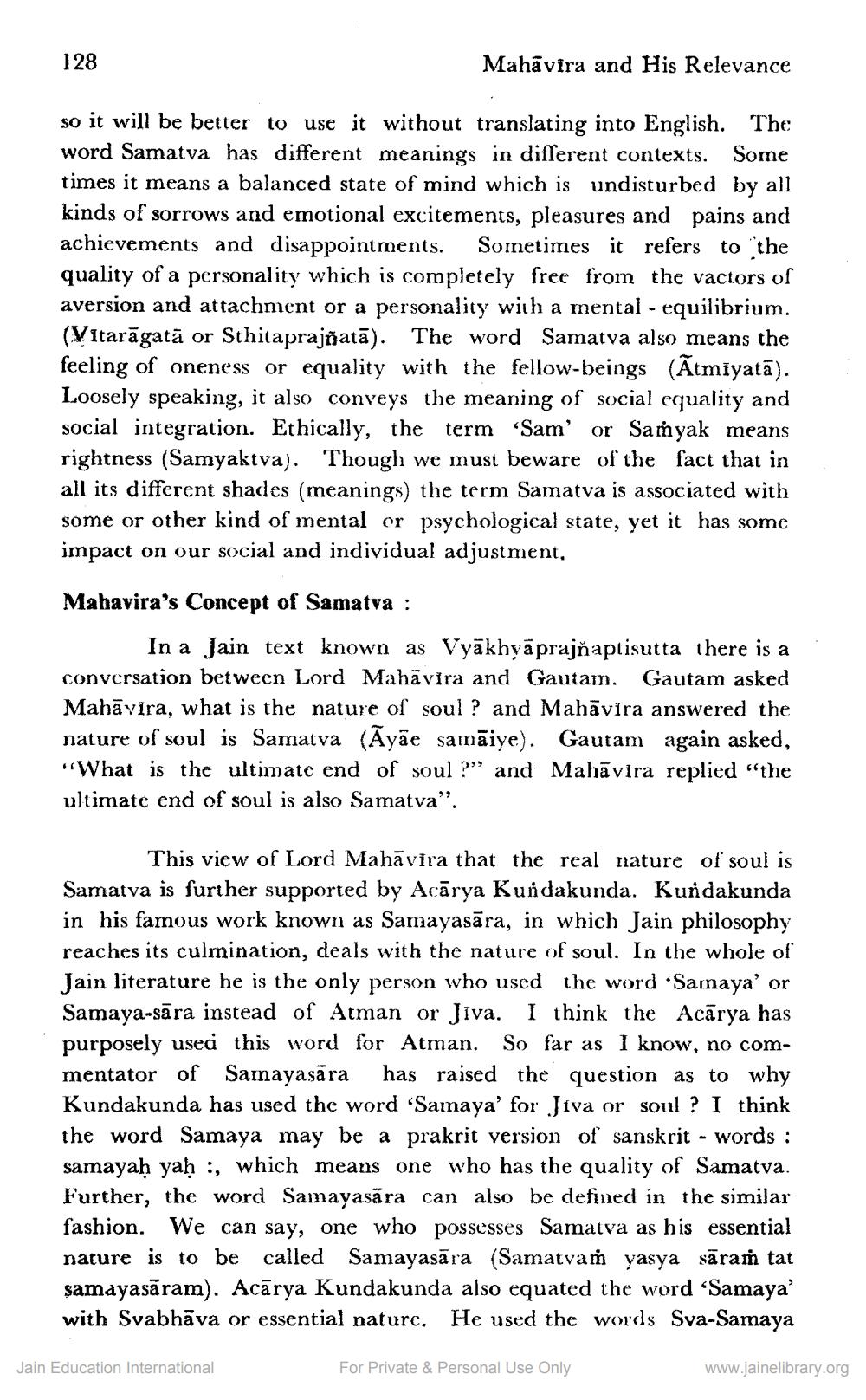________________
128
Mahāvīra and His Relevance
so it will be better to use it without translating into English. The word Samatva has different meanings in different contexts. Some times it means a balanced state of mind which is undisturbed by all kinds of sorrows and emotional excitements, pleasures and pains and achievements and disappointments. Sometimes it refers to the quality of a personality which is completely free from the vactors of aversion and attachment or a personality with a mental - equilibrium. (Vitarāgatā or Sthitaprajñatā). The word Şamatva also means the feeling of oneness or equality with the fellow-beings (Atmiyatā). Loosely speaking, it also conveys the meaning of social equality and social integration. Ethically, the term “Sam' or Samyak means rightness (Samyaktva). Though we must beware of the fact that in all its different shades (meanings) the term Samatva is associated with some or other kind of mental or psychological state, yet it has some impact on our social and individual adjustment,
Mahavira's Concept of Samatva :
In a Jain text known as Vyākhyāprajňaptisutta there is a conversation between Lord Mahāvira and Gautam. Gautam asked Mahāvīra, what is the nature of soul ? and Mahāvira answered the nature of soul is Samatva (Ayäe samāiye). Gautam again asked, "What is the ultimate end of soul ?” and Mahāvira replied "the ultimate end of soul is also Samatva”.
This view of Lord Mahāvīra that the real nature of soul is Samatva is further supported by Acārya Kundakunda. Kundakunda in his famous work known as Samayasāra, in which Jain philosophy reaches its culmination, deals with the nature of soul. In the whole of Jain literature he is the only person who used the word Samaya' or Samaya-sāra instead of Atman or Jiva. I think the Acārya has purposely used this word for Atman. So far as I know, no commentator of Samayasāra has raised the question as to why Kundakunda has used the word “Samaya’ for Jiva or soul ? I think the word Samaya may be a prakrit version of sanskrit - words : samayaḥ yah :, which means one who has the quality of Samatva. Further, the word Samayasāra can also be defined in the similar fashion. We can say, one who possesses Samatva as his essential nature is to be called Samayasāra (Samatva yasya sāram tat samayasāram). Acārya Kundakunda also equated the word “Samaya' with Svabhāva or essential nature, He used the words Sva-Samaya
Jain Education International
For Private & Personal Use Only
www.jainelibrary.org




